Applying Youth Voices: The Call for Juvenile Justice
This month, people all over the region are pushing to improve how we handle juvenile justice. Every year, hundreds of kids in Belize end up dealing with the law, whether they’re victims or have gotten into trouble. Juvenile justice is all about making sure these kids are treated fairly, and their rights are protected, just like the Convention on the Rights of the Child says they should be. In this week’s Five Point Breakdown, News Five’s Britney Gordon dives into how these kids end up in these situations and what UNICEF is doing to help protect them.
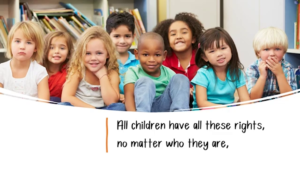 Britney Gordon, Reporting
Britney Gordon, Reporting
Everyone around the world has basic human rights, and knowing these rights is the first step to making sure they’re protected. This is especially important when dealing with the law. For kids who might not understand or know their rights, it’s crucial to provide extra support to ensure they’re upheld. According to the Convention on the Rights of the Child, kids accused of breaking the law have the right to legal help and fair treatment, with solutions aimed at helping them become positive members of their communities. Andrew Herrera, the Human Development Coordinator for the Community Rehabilitation Department, shares the efforts being made in Belize to support children in these situations.
What help exists for children interacting with the justice system?
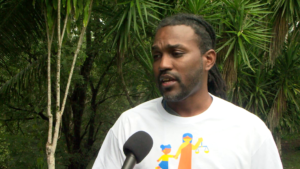
Andrew Herrera
Andrew Herrera, Human Development Coordinator, Community Rehabilitation Department
“We have the hub resource center that does evening classes, and we also have other, Programs that we run, like the Positive Move Apprenticeship Program, where we gather a group of young persons, and we train them for real life work scenarios, so that they can be prepared for work. Especially those who aren’t who don’t come to the traditional school setting. It’s a way for them to still be positively engaged, right? So, we also provide counseling, and we are responsible for the New Beginnings Youth Development Center, where we host children who needs protection. So, we host them in a facility so that we can work with them and reintegrate them back into society.”
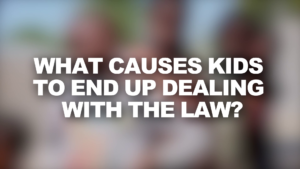 The CRC emphasizes that prison should be a last resort for kids. Often, it’s factors like family dynamics that push them into trouble with the law. Take Zane Hendy, for example. He’s a fourteen-year-old at New Beginnings Youth Development Center who ran away from home when he was just ten. He opens up about what drove him to make such a drastic decision at such a young age.
The CRC emphasizes that prison should be a last resort for kids. Often, it’s factors like family dynamics that push them into trouble with the law. Take Zane Hendy, for example. He’s a fourteen-year-old at New Beginnings Youth Development Center who ran away from home when he was just ten. He opens up about what drove him to make such a drastic decision at such a young age.
What causes kids to end up dealing with the law?
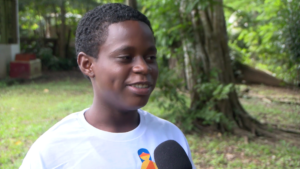
Zane Hendy
Zane Hendy, New Beginnings Resident
“When I was in school, I used to get teased a lot because like, I was in the poverty stage. And like, I didn’t like it, and then my mom was always trying to like, tell me not to worry. But I was like, how can I not worry, like, when I’m in class with them? And like, I wasn’t, I was like, less fortunate, and I didn’t know what, what to do. And my mom, we, I grew up in Hattieville from a New Mexico family. And we moved into the city. And I was like, I couldn’t handle the move. So I kept on running away from my mom. And then I started, the government and the human development started to get involved and I was taken away.”
Zane says that after he was taken into government care, it was difficult for him to adjust to the new setting, leading to him rebelling and rejecting the assistance.
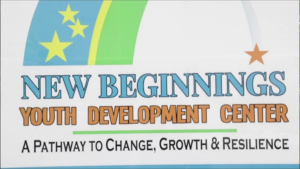 What Challenges do Children Face When interacting with the law?
What Challenges do Children Face When interacting with the law?
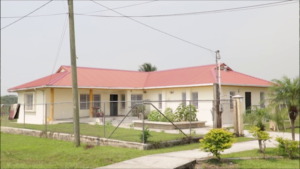 Zane Hendy
Zane Hendy
“I think it’s hard for some kids when they are removed from their parents’ house, although I think that it’s the best and other people think it’s the best for them. I think they should at least do something like leave them there and do checkups once in a while.”
Thanks to his counselors and his own hard work, Zane has really turned things around, improving both his behavior and his relationship with his family. On the other hand, we chatted with fifteen-year-old Beverly Choc, who finds it tough to talk to her mom and follow her rules.
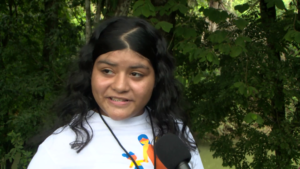
Beverly Choc
Beverly Choc, At-risk Youth,
“Basically I was hanging around the wrong crowd, and they teach me a lot of stuff to do that I didn’t want to do, but ended up, ended up doing it.”
Beverly has been working with a social worker for about a year now, and she’s slowly making progress at home. But she admits that the legal process can be really confusing, which sometimes leaves her feeling quite frustrated. Later this month, Zane will be heading to Panama to represent Belize in a regional consultation. He’ll be discussing ways to improve the system for the benefit of children. Just last week, UNICEF hosted a national consultation in Belize called Comment 27. They gathered a hundred kids to share their thoughts on juvenile justice. These kids have either had run-ins with the law or are part of the National Children’s Parliament 2024 cohort. Malenie Barnes, a Child Protection Officer at UNICEF, explained that Comment 27 aims to push forward the juvenile justice agenda.
Do consultations help the government hear the concerns of children?
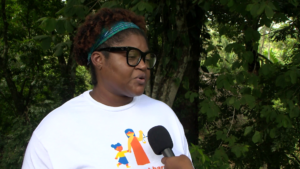
Malenie Barnes
Malenie Barnes, Child Protection Officer, UNICEF
“Children from across the region will then be presenting these recommendations to these justice actors. It’s a call to action to address legislation, to address procedures and protocols that improve the lives of children who come in contact and conflict with the justice system. Hopefully, coming out of this, we would have some strong buy in from these actors to make legislative change, but more so to improve the lives of children who come in, into the justice system.”
Comment 27 opens a lot of doors for children to have their voices heard. The CRC states that children have the right to give their opinions freely on issues that affect them, and that these opinions should be taken seriously by adults. Ana Carrillo, Child and Adolescent Participation Officer at the National Commission for Families and Children tells us how supporting these forums reaffirms their mandate to uphold the CRC.
Amplifying the Voices of the Children
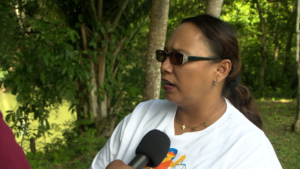
Ana Carrillo
Ana Carrillo, Child and Adolescent Participation Officer, NCFC
“We at NCFC, we would like for them to know that our doors are open if they need any kind of guidance. also in seeking referrals, if they need to identify someone to represent them. We have a committee which is our policy and legislation committee that also guides us in how we can better provide, legislatively wise at the National Assembly, doing recommendations that would give children a better opportunity to know that, that there is help out there.”
These consultations are just one piece of the puzzle in amplifying the voices of young people. Cameera Caliz, a member of the National Children’s Parliament 2024 cohort, hopes that through these initiatives, more of her peers will stand up for their rights and make a real difference in the world.
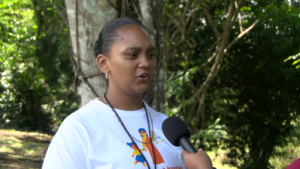
Cameera Caliz
Cameera Caliz, National Children’s Parliament
“This initiative is to educate children on their rights that are important. Each and all of us have as a youth. So basically we can seek remedies and justice where it is due when individuals and people of higher authority or anyone on a whole is violating our rights. So this ties into the national children parliament as we will be more insightful and,see how we can make a difference in the future as we are the adults of tomorrow.”
Britney Gordon for News Five.






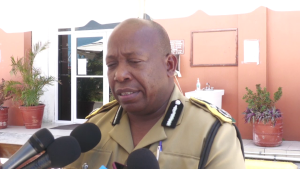
Facebook Comments